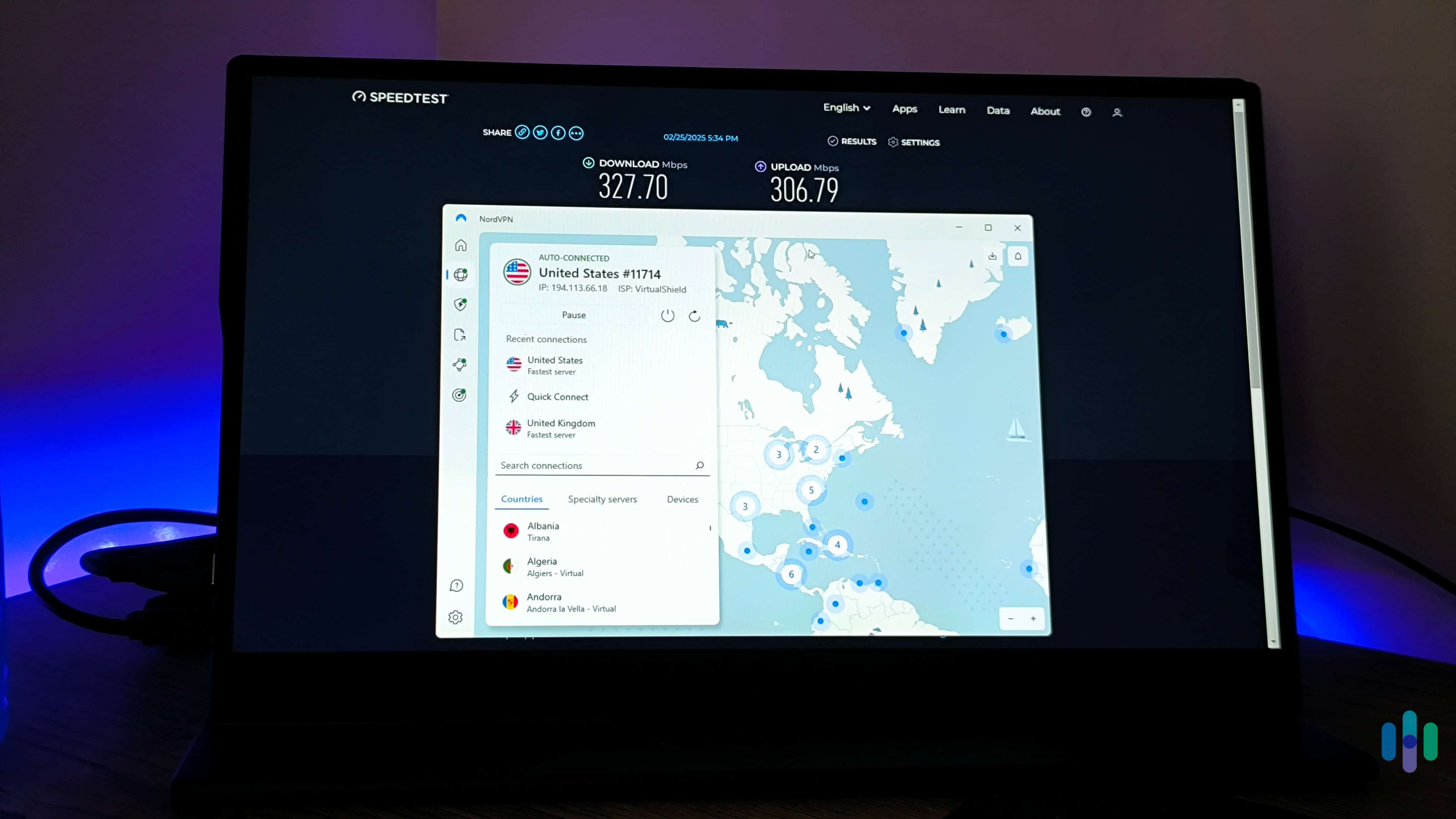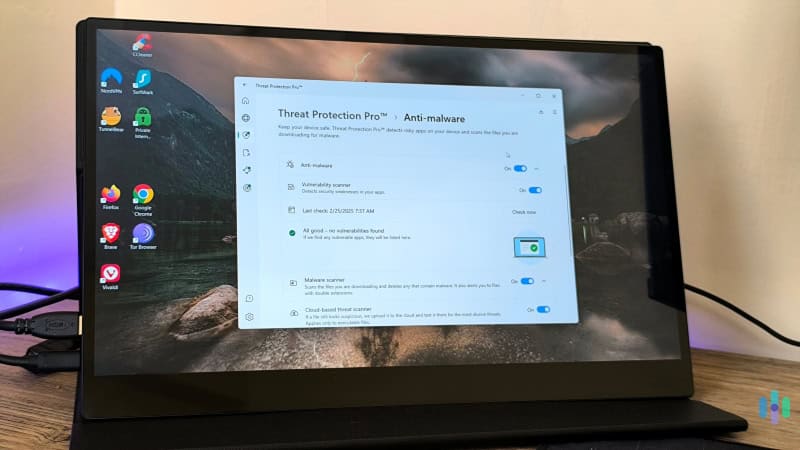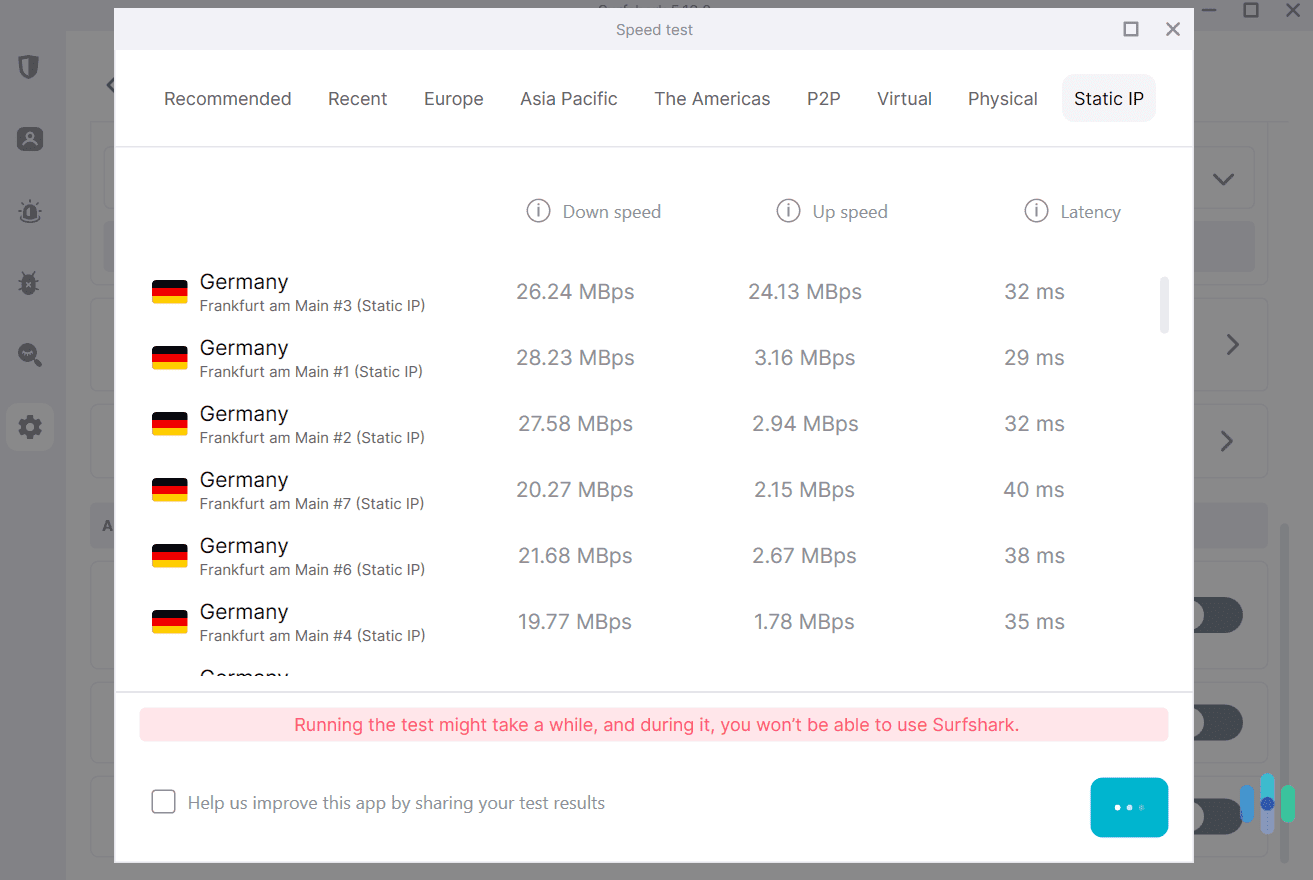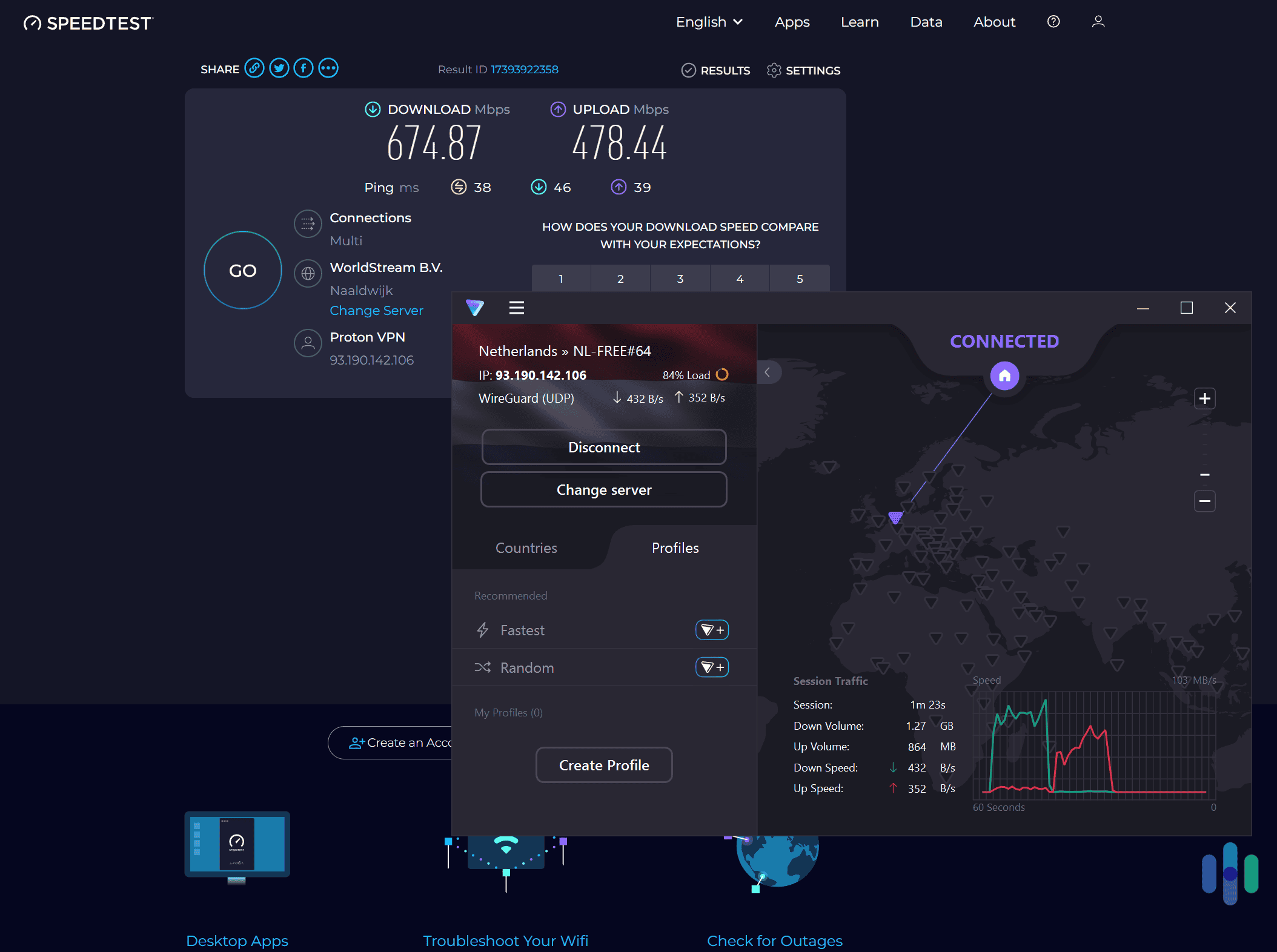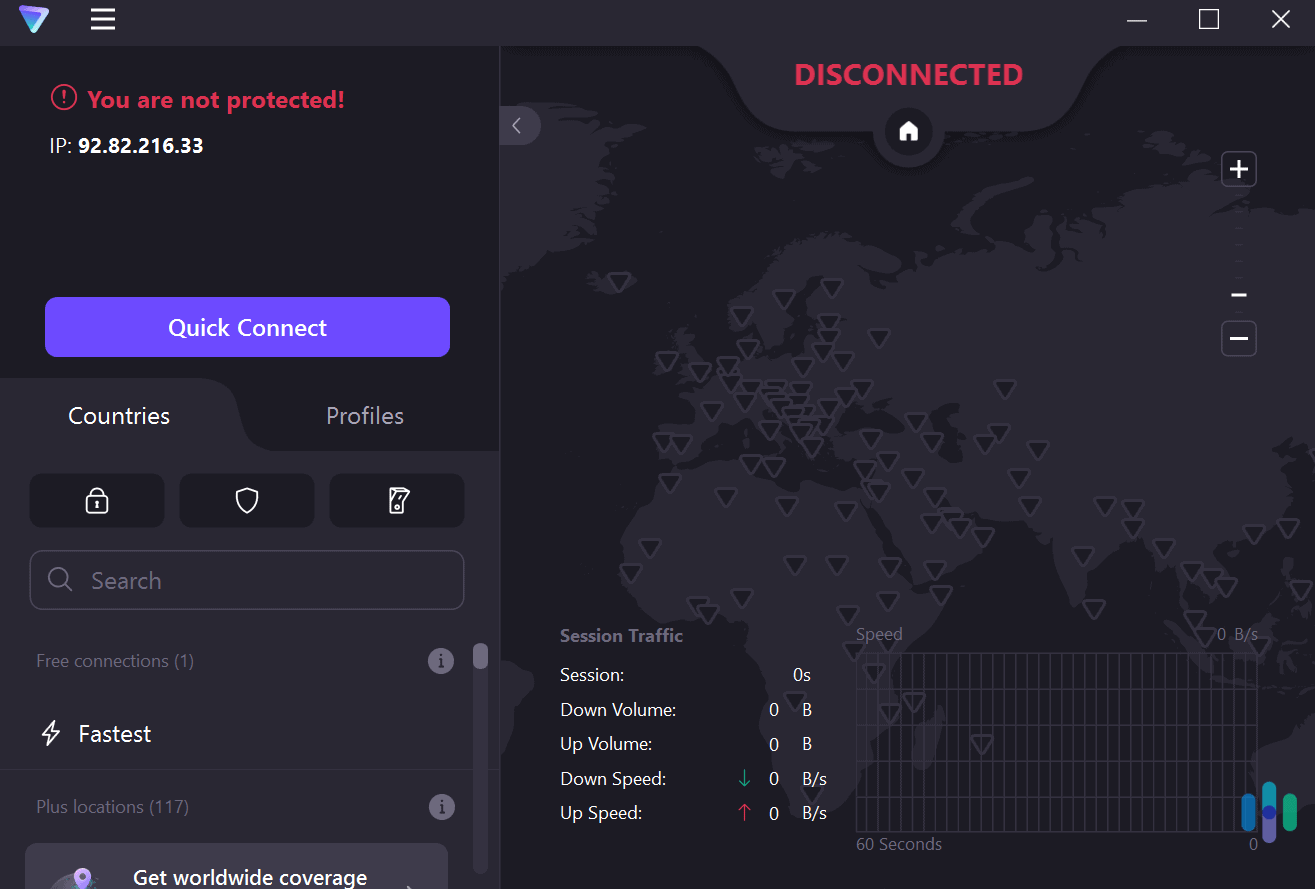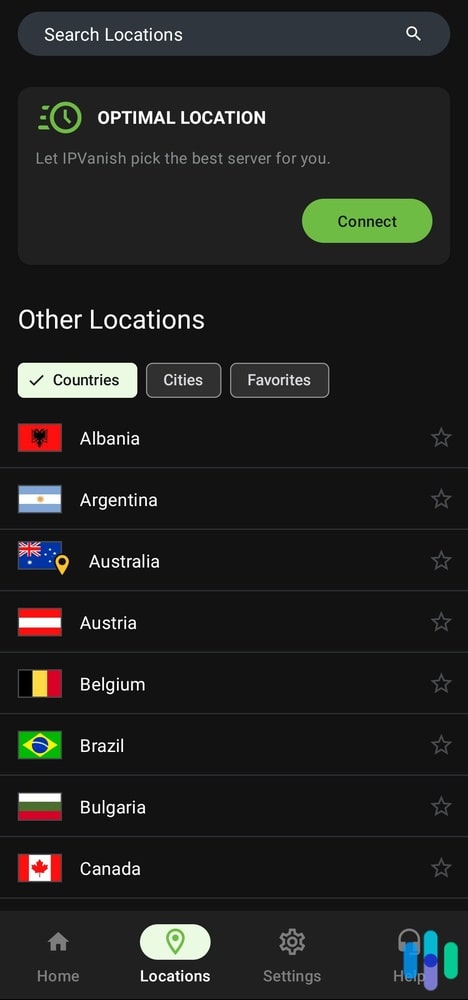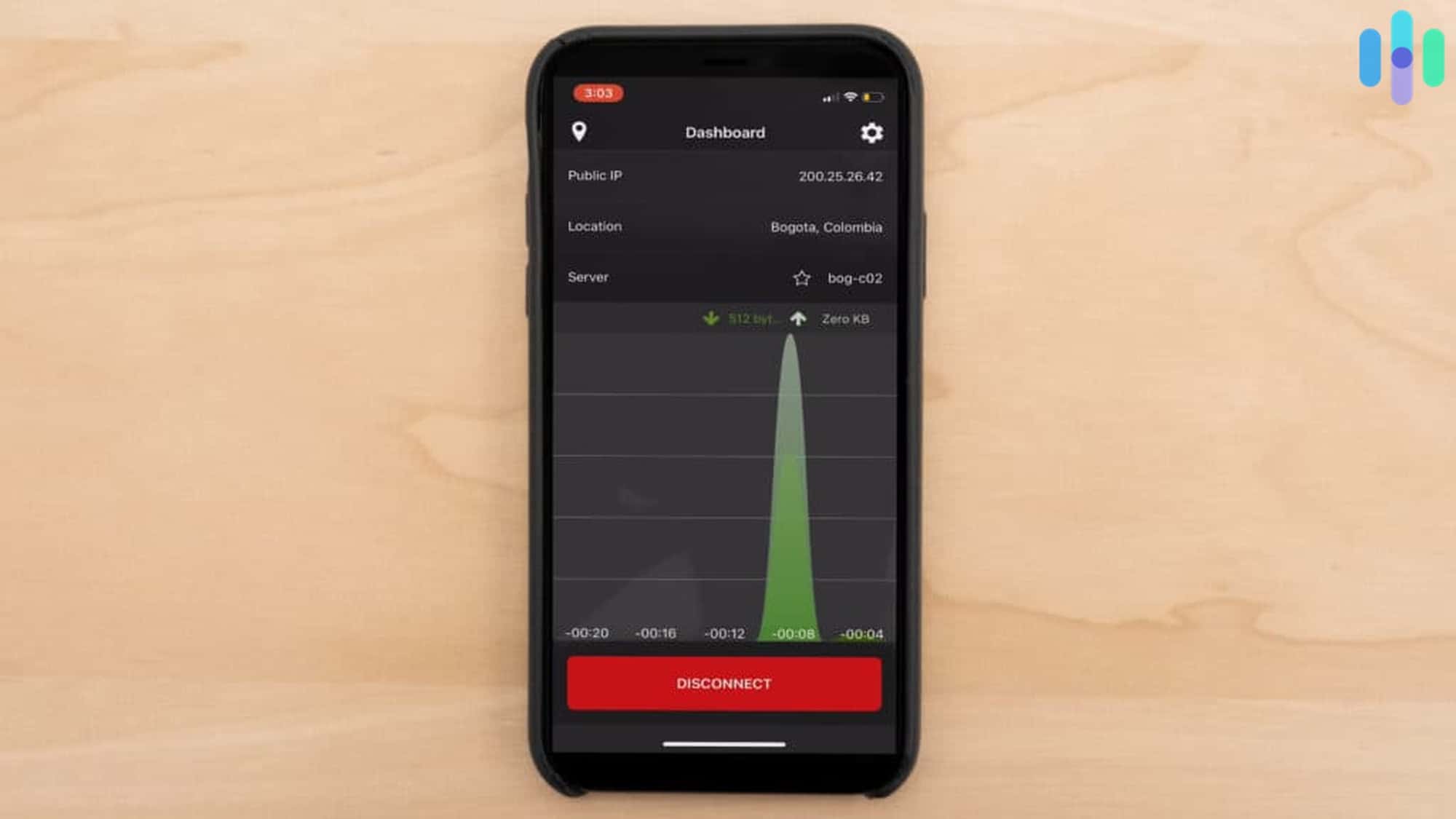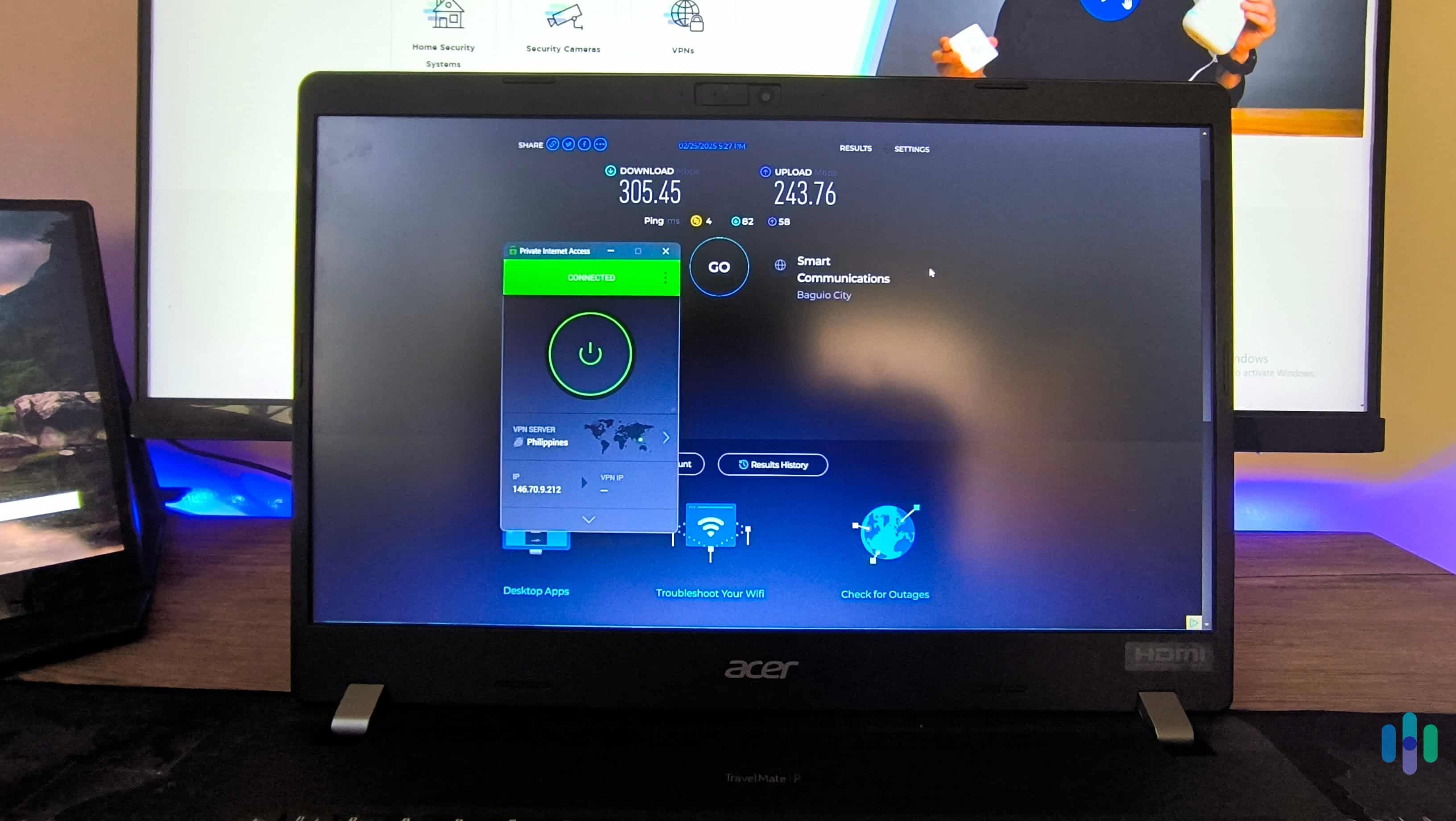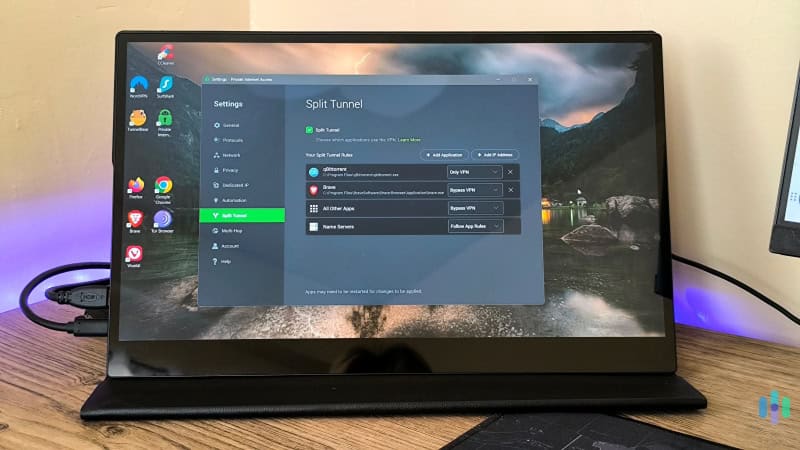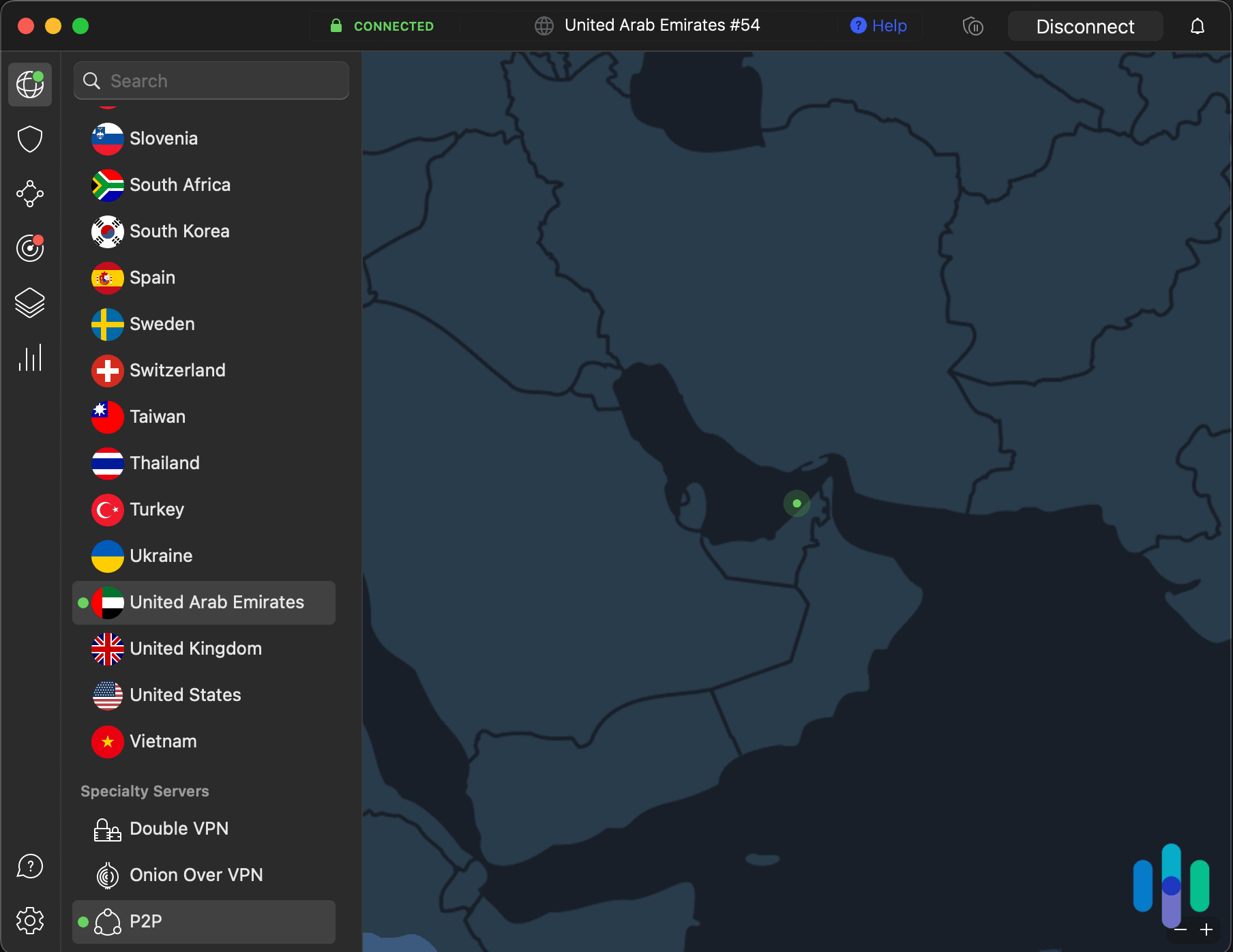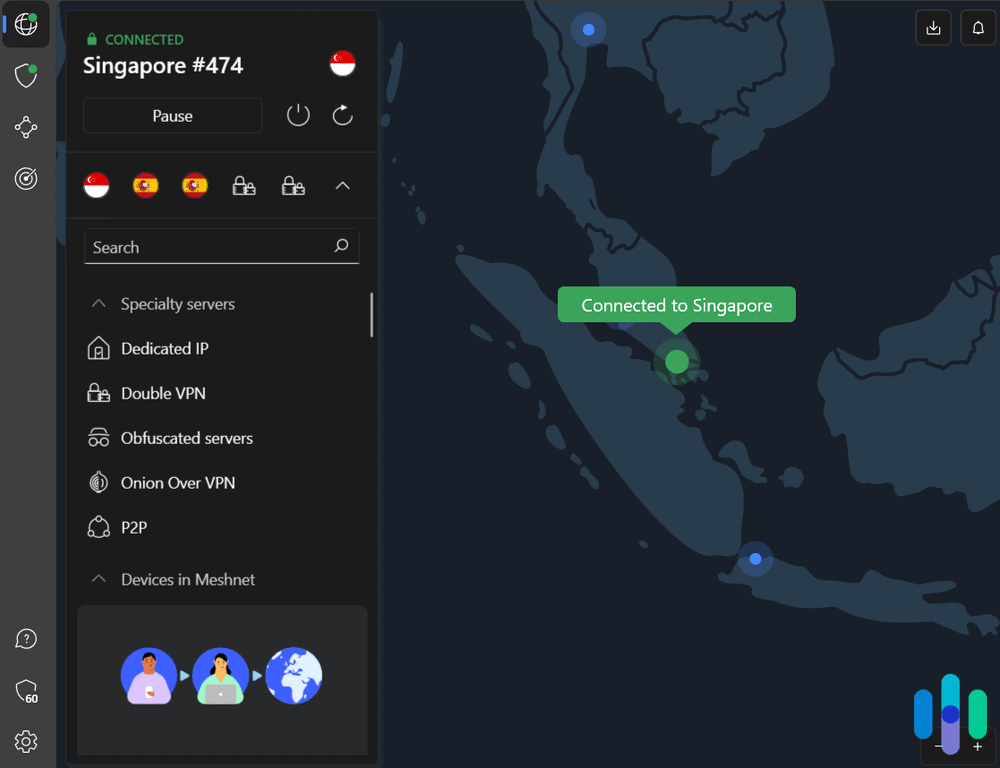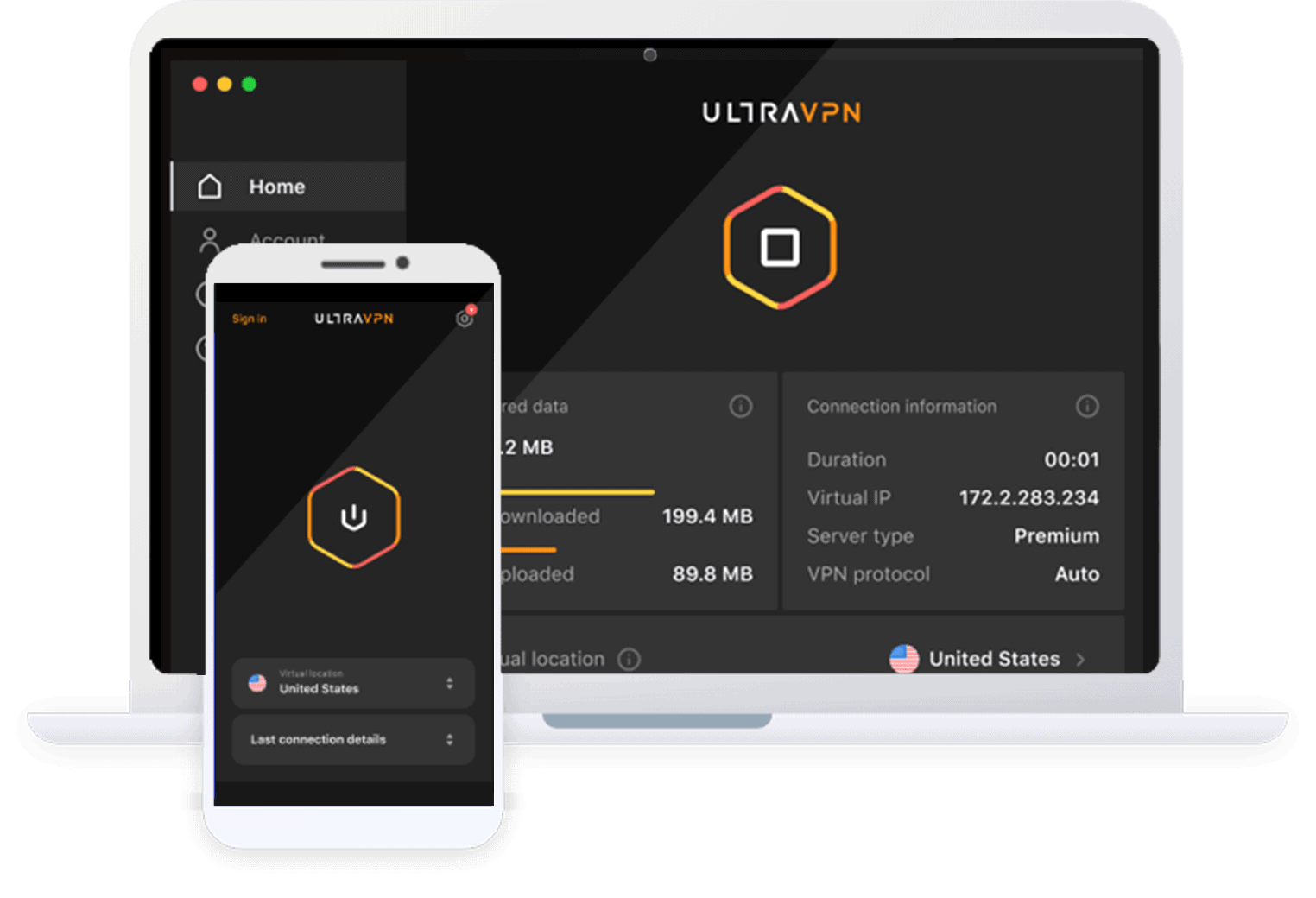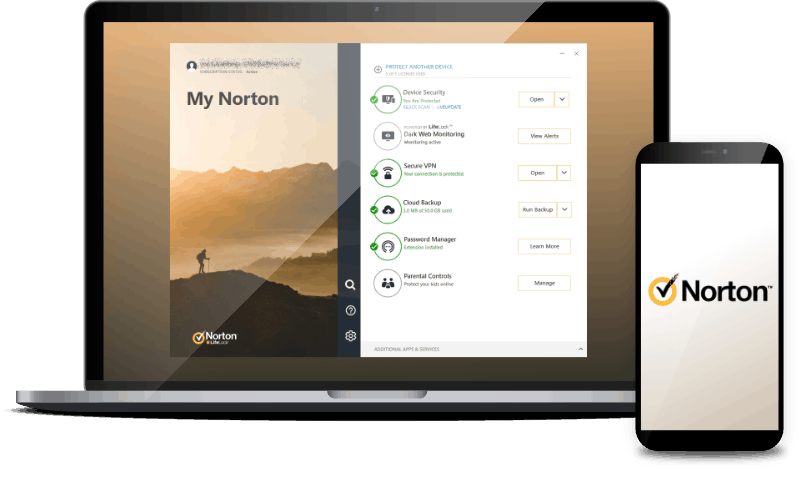The 5 Fastest VPNs in 2026, Regularly Tested
All VPNs cause network slowdowns, but the five fastest VPNs we tested can consistently keep the speed loss to less than 10%.
- Maintains very fast download and upload speeds
- Has high-end security features, including protection against malicious downloads
- Has VPN servers in 118 countries
- Maintains very fast speeds for HD and 4K streaming
- Works with tons of popular streaming sites like Netflix, Disney+, and Max
- Provides super-fast streaming via a smart DNS
- Has a free version that maintains very fast download and upload speeds
- Free users get access to fast VPN protocols, such as WireGuard and IKEv2/IPSec
- The free version provides unlimited bandwidth
We might as well say this upfront: All VPNs protect your data and privacy in such a way that it slows down your internet speed. There’s no getting around that. A VPN encrypts your traffic and routes it through a VPN server elsewhere, rather than going directly to a website. Those extra steps can make a substantial difference to how quickly you can access a website, download from the internet, and stream videos.
Unfortunately, with some VPNs, the slowdown is very noticeable — you spend more than 10 seconds waiting for a simple web page to load, or you have to deal with buffering every few seconds when watching a video.
Luckily, we managed to find some VPNs that provide very fast speeds for all online activities. We spent weeks testing all of the top VPNs in 2026 and ultimately decided that NordVPN, Surfshark, Proton VPN, IPVanish, and Private Internet Access,are the best options.
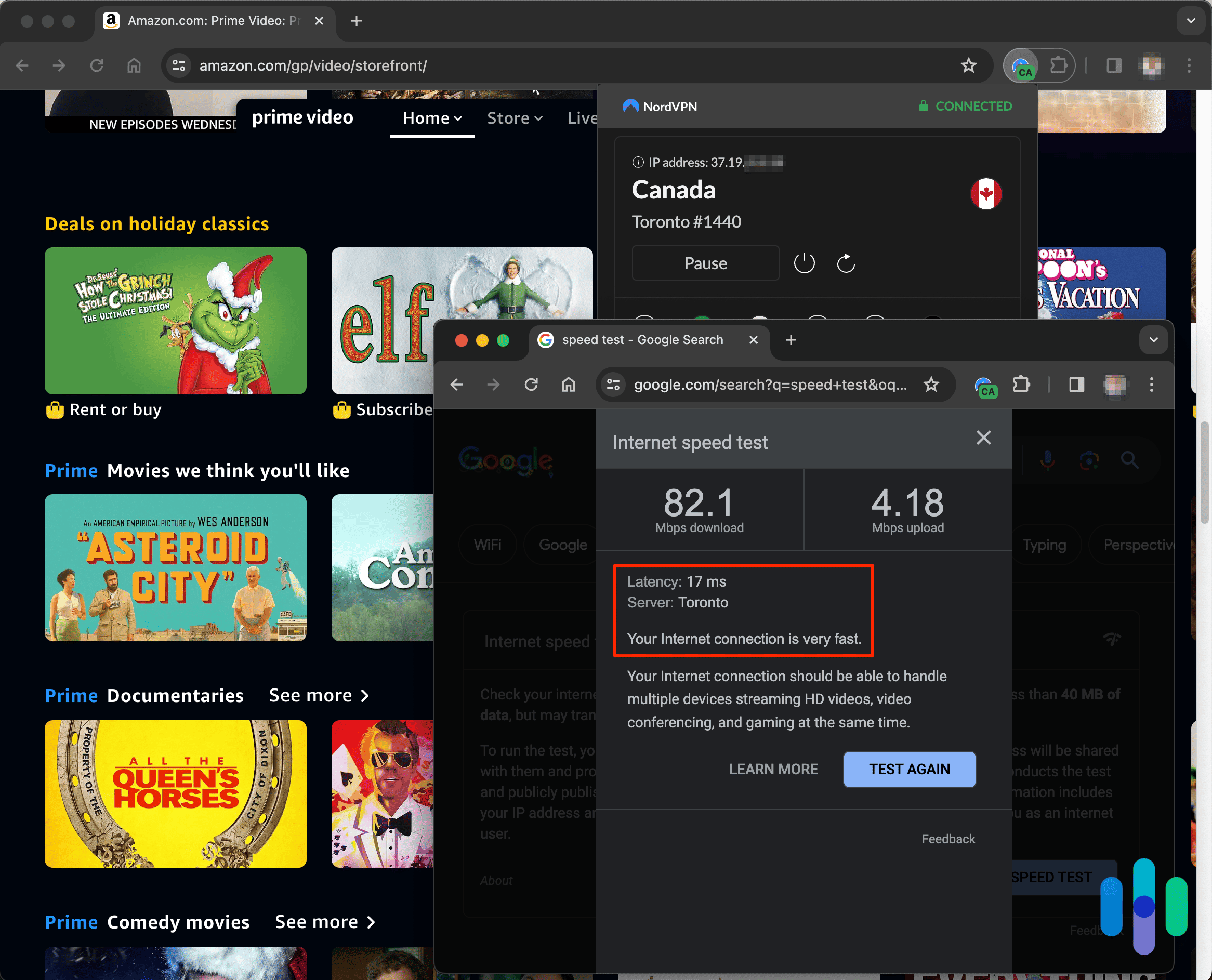
The 5 Fastest VPNs in 2026
- NordVPN - Fastest VPN for Security
- Surfshark - Fastest VPN for Streaming
- Proton VPN - Free VPN With Very Fast Speeds
- IPVanish - Fastest for Smartphones
- Private Internet Access - Fast VPN for Torrenting
Specs: Fastest VPNs Compared
| System |
NordVPN

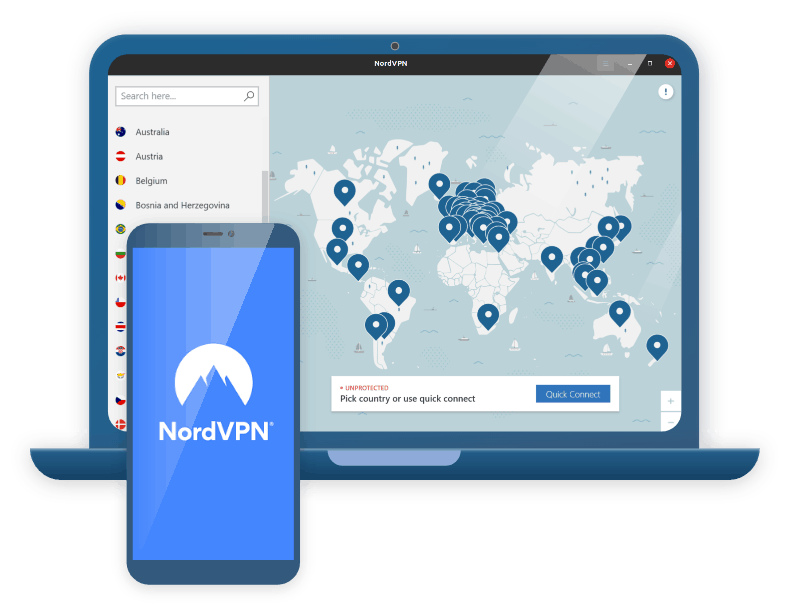
|
Surfshark


|
Proton VPN
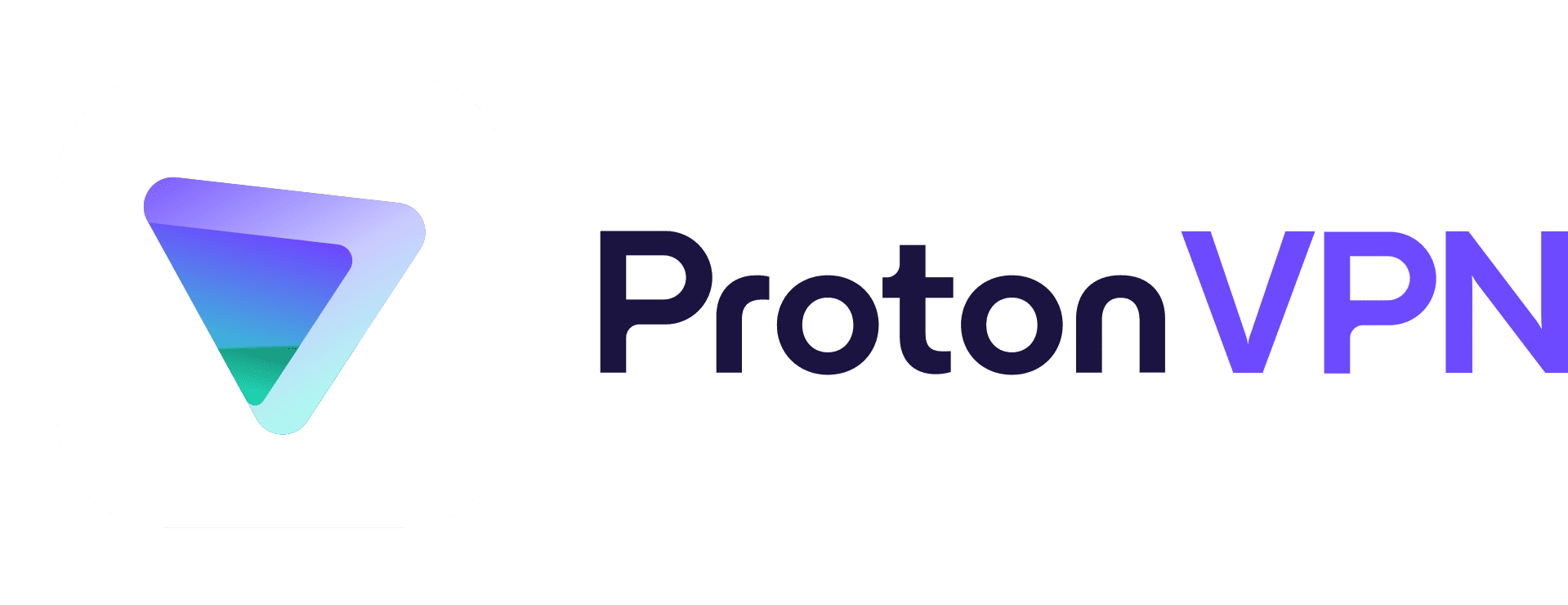
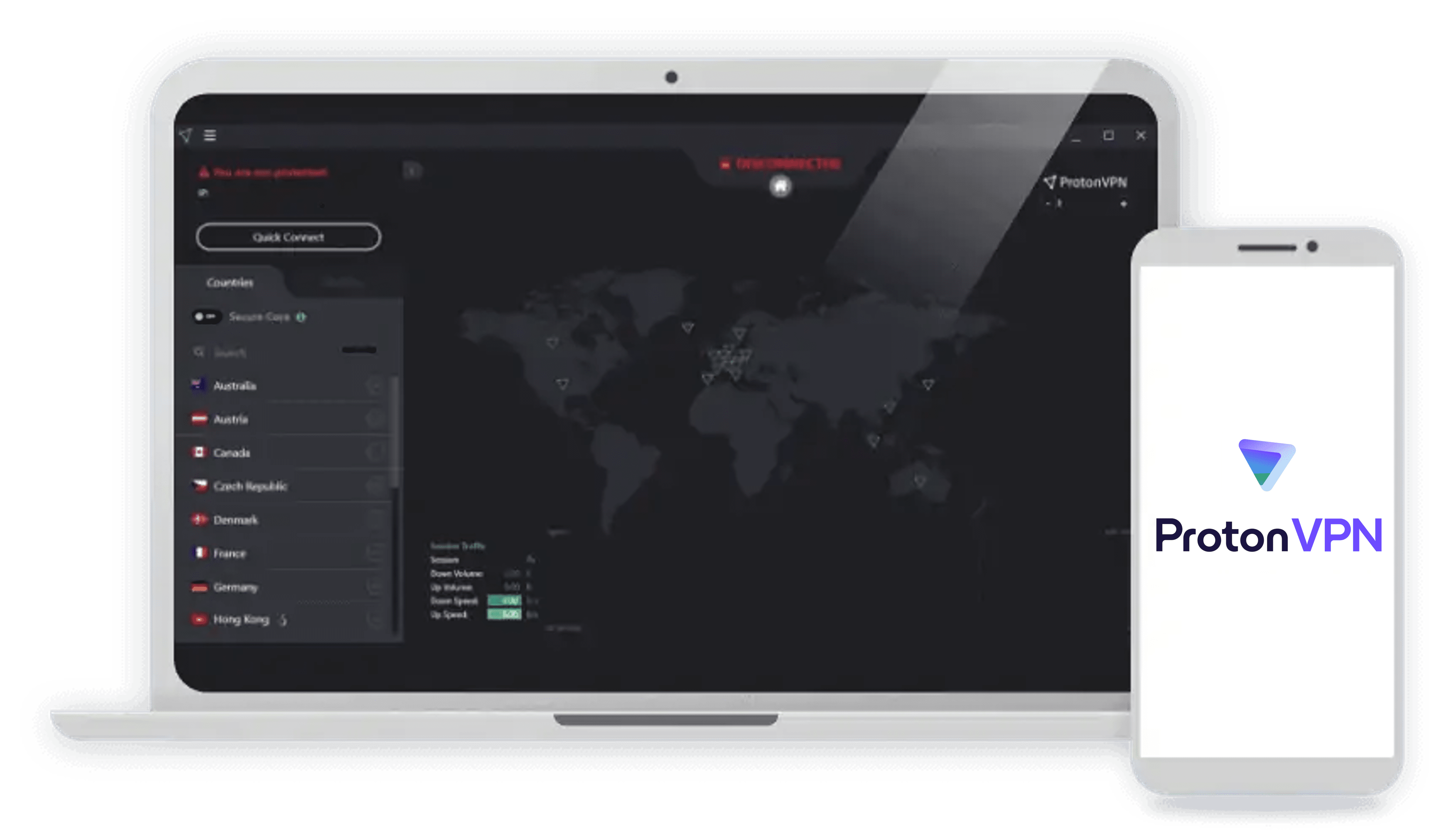
|
IPVanish


|
Private Internet Access

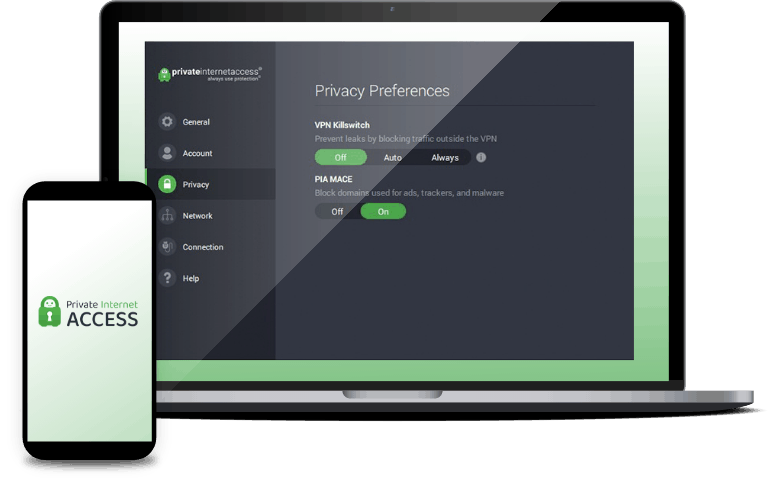
|
|---|---|---|---|---|---|
| Ranking | 1st | 2nd | 3rd | 4th | 5th |
| Ratings | 9.7/10 | 9.5/10 | 9.3/10 | 9.3/10 | 9.4/10 |
| Download Speed Loss | 5.78% | 7.76% | 8.18% | 4% | 4.84% |
| Upload speed loss | 4.11% | 49.98% | 4.08% | 5.02% | 84.26% |
| Number of Countries | 118 | 100 | 117 | 106 | 91 |
| VPN protocols | NordLynx (based on WireGuard), OpenVPN, NordWhisper | WireGuard, OpenVPN | WireGuard, IKEv2/IPSec, OpenVPN, Stealth | WireGuard, IKEv2/IPSec, OpenVPN | NordLynx (based on WireGuard), OpenVPN, NordWhisper |
| Split-Tunneling | Yes | Yes | Yes | Yes | Yes |
| Starting Price | $3.39/month | $2.19/month | $3.59/month | $2.19/month | $2.19/month |
| Money-Back Guarantee | 30 days | 30 days | 30 days (but is prorated) | 30 days (only covers long-term plans) | 30 days |
| Read Review | NordVPN Review | Surfshark Review | Proton VPN Review | IPVanish Review | Private Internet Access Review |
Learn More About The Fastest VPNs
-
1. NordVPN - Fastest VPN for Security
 Get NordVPN Links to NordVPN
Get NordVPN Links to NordVPNProduct Specs
Server locations 129 countries Average Speed Loss 6% download & 4% upload Apps Windows, MacOS, Linux, Android, iOS, Chrome, Firefox, Edge, Android TV, tvOS Best Monthly Rate $3.39/mo with a 2-year plan Money-Back Guarantee 30 days full refund 
Who NordVPN Is Good for
NordVPN always maintained fast speeds on both nearby and distant servers in our tests. NordVPN is an excellent pick if you want to mix fast VPN speeds with strong security features. In addition to testing its speed, we also tried out NordVPN’s high-end security tools, including ad-blocking, protection against malicious downloads, and dark web monitoring. We also believe that NordVPN is excellent for protecting your online privacy since its no-logs policy is audited and it’s based in a privacy-friendly country (Panama).
>> Read More: The Best No-Log VPNs in 2026
What We Like
- Provides very fast speeds via the NordLynx protocol
- Has servers in 118 countries
- Has intuitive VPN apps for all devices
- Provides access to high-end security features
What We Don’t Like
- A bit pricier compared to its competitors
- The cheapest subscription doesn’t include Threat Protection Pro
- The pricing changes after the initial term
VPN Speed Tests
NordVPN consistently ranks very high in all the VPN speed tests we regularly perform. On average, it only slows down our download speeds by about 5.78% and our upload speed by 4.11%. That’s really impressive since we find that the average speed loss when using a VPN is somewhere around 20%.
We also ran additional speed tests with NordVPN for this guide, and we were very happy with the results. We connected to eight distant servers and used them to watch 4K videos on Netflix, play online games, and torrent a 9 GB file. All the 4K videos we watched loaded instantly, and we never experienced lag or high ping while playing Roblox and Call of Duty: Warzone. Also, it usually took us around five to six minutes to download the 9 GB file.
Pro Tip: If you mainly want to use the VPN torrent, you should know that NordVPN also has SOCKS5 proxy servers. These servers change your IP address but don’t encrypt your traffic, resulting in faster speeds. We configured one of the SOCKS5 servers to torrent the same 9 GB file we used for our tests — it took just two minutes, which was around 60% faster than the VPN connection.
Server Network, Protocols & Extra Features
In addition to very fast speeds, NordVPN also has really strong security features (including protection against malware-infected downloads). We’re really impressed by the size of NordVPN’s server network. When we used its apps, we counted a total of 118 countries. That makes it super easy to find and connect to nearby servers to get the fastest speeds. You also get access to the NordLynx VPN protocol, which we think further helps the VPN maintain very fast speeds. NordLynx is NordVPN’s proprietary protocol, and it’s based on WireGuard (which is a really fast protocol).
You also get access to split-tunneling on most apps, which lets you pick which apps use the VPN and which don’t. For example, we use this feature to only send traffic we want to secure through NordVPN, meaning all other apps connect to the internet like normal.
NordVPN also has high-end security features. We really like its Threat Protection Pro feature — it blocks ads and trackers, sites that contain malicious content (like adware, for example), and even downloads that contain malware, similar to how an antivirus works. There’s also a tool called Dark Web Monitor, which alerts you if your NordVPN login details are compromised on the dark web.
>> Read More: What Is VPN Split-Tunneling?
User Experience
NordVPN has apps for all major desktop, mobile, and smart TV devices. We installed and tested its Windows, macOS, Android, and iOS apps. We think the installation and initial setup is very straightforward — it shouldn’t take you more than two minutes on average.
We also think that NordVPN’s apps are extremely simple to use. We like how there’s a quick-connect feature — with one click, it instantly connects us to the fastest server for our location. Plus, the apps also feature a digital map and a search field that you can use to quickly find and connect to a specific location.
FYI: We used a timer to see how long it’d take us to use NordVPN to get a UK IP address. We used both the digital map and search field to manually find and connect to one of NordVPN’s UK servers. On average, it never took more than seven to eight seconds to do that.
Pricing
NordVPN has several tier-based subscriptions: Basic, Plus, Complete, and Prime. Basic starts at $3.39 per month, but it doesn’t include Threat Protection Pro. Instead, it only has Threat Protection, which blocks phishing and malicious domains and some ads. We recommend getting the Plus subscription instead (it’s the one we signed up for) since it comes with Threat Protection Pro and NordPass, a password manager.
NordVPN Subscription 1-Month Plan 1-Year Plan 2-Year Plan Basic $12.99/month $4.99/month $3.39/month Plus $13.99/month $5.99/month $4.39/month Complete $14.99/month $6.99/month $5.39/month Prime $17.99/month $9.99/month $8.39/month The other subscriptions add more security services — Complete adds encrypted cloud storage, and Prime adds NordProtection (an identity theft protection service). Also, NordVPN backs all plans with a 30-day money-back guarantee.
>> Read More: How Much Does NordVPN Cost?
-
2. Surfshark - Fastest VPN for Streaming
 Get Surfshark VPN Links to Surfshark.com
Get Surfshark VPN Links to Surfshark.comProduct Specs
Server locations 100 countries Average Speed Loss 8% download & 50% upload Apps Windows, MacOS, Linux, Android, iOS, Chrome, Firefox, Edge, tvOS, Android TV, Fire TV Best Monthly Rate $1.99/mo with a 2-year plan Money-Back Guarantee 30 days full refund 
Who Surfshark Is Good for
We usually maintained very good download speeds when we tested Surfshark.
Surfshark is an excellent streaming VPNs since it’s compatible with tons of popular sites, including Netflix, Disney+, Amazon Prime Video, BBC iPlayer, Max, Hulu, ESPN+, and Crunchyroll. It also has an IP-rotating feature that makes it harder for streaming platforms to detect and block it. That, plus its excellent download speed, makesSurfshark the best fast VPN for streaming.
>> Read More: The Best VPNs for Streaming in 2026
What We Like
- Maintains fast download speeds via WireGuard and IKEv2/IPSec
- Has an in-app option to display the server ping for all locations
- Works with many popular streaming platforms, like Netflix, Max, and Hulu
- Allows unlimited simultaneous connections
What We Don’t Like
- There’s a built-in speed test, but only on the Windows app
- Its monthly plan is pretty expensive
- Lacks extra P2P features for boosting speeds (port forwarding or SOCKS5 proxies)
VPN Speed Tests
Surfshark generally provides us with good download speeds. On average, it only slowed down our downloads by around 7.76%. However, there tends to be a noticeable slowdown when it comes to upload speeds — our average speed loss was almost 50%. That’s 10 times bigger than NordVPN’s average upload speed loss, which was only about 4.11%.
For this guide, we connected to several distant servers and used Surfshark while watching videos on sites like Netflix, Disney+, YouTube TV, and Max. Every video we watched always loaded instantly, and we never experienced noticeable buffering while skipping through the videos. We also used Surfshark to upload a 15-minute video review to our YouTube channel, which took around 25 minutes to finish — without a VPN, uploading the same video would take around 17 minutes. We were honestly pretty impressed with the results, considering the pretty big drop in upload speeds.
>> Read More: Surfshark vs. NordVPN
Server Network, Protocols & Extra Features
Whenever we used Surfshark’s built-in speed test on Windows, it always accurately displayed the fastest servers for our location. Surfshark has a huge server network, with locations in 100 countries. We also checked all of its apps and saw that it provides built-in support for WireGuard and IKEv2/IPSec, which are both very fast.
The VPN also provides access to split tunneling on most of its apps. And we like how there’s also a built-in speed test — you can use it to see which VPN servers would provide you with the fastest speeds. We used the speed test, and its recommendations were accurate. Our only complaint is that the speed test is only available on the VPN’s Windows app.
User Experience
Surfshark has apps for pretty much all desktop, mobile, and smart TV devices. Plus, it allows unlimited connections. We installed and tested the VPN’s speeds on our Windows, macOS, Android, and iOS devices. The installation and setup process was very straightforward — it only takes one to two minutes.
We think that Surfshark’s apps are very intuitive and that they make it easy to find and connect to different servers. We also like how there’s a button for testing the server location speeds on the main connection screen. If you click it, Surfshark will quickly display the server ping for each VPN server. We find that useful, though it’d be more convenient if it’d just show the server ping by default like Private Internet Access does.
Pro Tip: Surfshark also provides access to a smart DNS, which is a tool for accessing streaming content on devices that don’t support VPN apps. You could use the smart DNS to watch your favorite TV shows and movies on gaming consoles or certain smart TVs. Also, a smart DNS doesn’t encrypt your traffic, so it won’t slow down your streaming speeds at all.
Pricing
Surfshark has three tier-based subscriptions: Surfshark Starter, Surfshark One, and Surfshark One+. We think Surfshark Starter is the best pick (it’s the one we signed up for) since it provides access to all VPN features. Plus, its prices start at just $2.19 per month.
Surfshark Starter Subscription Costs 1-Month Plan $15.45/month 1-Year Plan $3.19/month 2-Year Plan $2.19/month If you get Surfshark One, you also get access to the Surfshark Antivirus we reviewed. Surfshark One+ further adds an Incogni subscription, a data removal tool. We’d also like to highlight how Surfshark backs all of its plans with a 30-day money-back guarantee.
>> Related: How Much Does Surfshark Cost in 2026?
-
3. Proton VPN - Free VPN With Very Fast Speeds
 View Plans Links to Proton VPN
View Plans Links to Proton VPNProduct Specs
Server locations 127 countries Average Speed Loss 8% download & 4% upload Apps Windows, MacOS, Linux, Android, iOS, Chrome, Firefox, Android TV, tvOS, Firestick Best Monthly Rate $2.99/mo with a 2-year plan Money-Back Guarantee 30 days 
Who Proton VPN Is Good for
Proton VPN’s free servers provided us with fast browsing, streaming, and gaming speeds. Proton VPN is an ideal pick if you’re looking for a free VPN that maintains fast speeds. Proton VPN has one of the best free VPNs in 2026. In addition to maintaining very fast speeds, it also provides access to unlimited bandwidth, very intuitive VPN apps, and strong security and privacy features.
What We Like
- Free version provides fast speeds and unlimited data
- Free users get access to WireGuard and IKEv2/IPSec
- The VPN’s apps are extremely simple to use
What We Don’t Like
- Extra features that boost speeds are only available to paid users
- Free users can’t choose which servers they connect to
- The free version limits you to one device
VPN Speed Tests
We ran multiple speed tests while connected to Proton VPN’s free servers, and the results were really good — our download speeds only took a 13% hit, and our upload speeds slowed down by around 7.45%. We also regularly test the paid version’s speeds. While connected to premium servers, our download speeds usually slow down by around 8.18%. The upload speeds are on par with NordVPN, as they only slow down by approximately 4%.
For this guide, we used the VPN’s free servers to surf websites, watch videos on YouTube, and upload large files to our office’s Google Drive. All the sites we accessed loaded instantly. And so did most YouTube videos — there were only three YouTube videos where we had to wait up to five seconds for them to fully load. Also, it generally took us around 10 to 11 minutes to upload 5 to 6 GB files to our Google Drive. That’s pretty good since, without a VPN, the same files usually take around five minutes less to finish uploading.
>> Find Out More: Proton VPN vs. NordVPN
Server Network, Protocols & Extra Features
Free users only get access to servers in five countries, whereas paid users can connect to servers in 117 countries. While the number of free server locations is small, we like how the free version provides access to WireGuard and IKEv2/IPSec, which are both really fast.
Unfortunately, Proton VPN’s free version doesn’t provide access to any extra features that would help you boost your VPN speeds. If you upgrade to the paid version, you get access to split tunneling and VPN Accelerator. The latter is a unique technology from Proton VPN that noticeably boosts VPN speeds, especially on distant servers.
FYI: For this guide, we also upgraded to Proton VPN’s paid version to test its VPN Accelerator feature. After we enabled it, we noticed that it boosted our speeds while connected to distant VPN servers by 35% to 40% on average, which is really impressive.
User Experience
Proton VPN automatically connects free users to the fastest servers for their location. As a free user, you get access to almost all of Proton VPN’s apps: Windows, macOS, Linux, iOS, Android, Android TV, and Fire TV. The only app you can’t use for free is the Apple TV app. Also, the free version limits you to just one connection.
We consider Proton VPN to be very user-friendly, but the overall experience is pretty limited if you’re a free user. That’s because you can’t choose which server to connect to — Proton VPN automatically connects you to the fastest free server for your location. While this is restrictive, we can see how it’d also be convenient. For example, if you’re in a hurry to play an online game or watch a video, you only need to launch the VPN app and connect with one click. You don’t have to worry about finding the right server to get the fastest speeds.
FYI: Proton VPN also displays the server load. This metrics shows you how many active users are connected to a VPN server. The higher the server load, the more likely you are to deal with slow speeds. As a paid user, you can use this metric to narrow down which servers would provide you with the fastest speeds.
Pricing
Proton VPN’s paid version features affordable prices. With the longest plan, you only pay $3.59 per month. The VPN also offers a 30-day money-back guarantee for all plans, but keep in mind it’s prorated. This means Proton VPN will only refund you for any unused portion of the service. For instance, if you ask for a refund after 18 days, Proton VPN will refund you for the remaining 12 days.
Proton VPN Pricing Plans 1-Month Plan $9.99/month 1-Year Plan $3.99month 2-Year Plan $3.59/month >> Learn More: How Much Does Proton VPN Cost?
-
4. IPVanish - Fastest for Smartphones
View Plans Links to IPVanishProduct Specs
Multihop Yes Obfuscated Servers Yes Kill Switch Yes Split Tunneling Yes Netflix Yes Torrenting Yes Who IPVanish Is Good for
IPVanish connects you to the fastest server for your location with just one click. IPVanish is a good pick if you’re looking for a fast VPN and are also new to VPNs. The VPN’s apps are really easy to navigate, and it really shouldn’t take you more than a few seconds to find and connect to a VPN server.
What We Like
- Maintains super-fast download and upload speeds
- Supports WireGuard and IKEv2/IPSec connections
- Has servers in 106 countries
- Provides really good P2P support (supports SOCKS5 connections)
What We Don’t Like
- Limited app-based split tunneling (can only exclude apps)
- Might not work well in restrictive countries
- Refund policy doesn’t cover the monthly plan
VPN Speed Tests
IPVanish consistently performs very well in our speed tests — almost as well as NordVPN, actually. On average, it slows down our download speeds by around 4% and our upload speeds by only 5%. We’re really impressed with the 5% upload speed decrease, especially considering that other top competitors slow down upload speeds by much more than that — for example, Private Internet Access usually slows down our upload speeds by approximately 84.26%.
We also tested five distant server locations from IPVanish while browsing the web, streaming, and gaming for this guide. Any website we accessed always loaded instantly, and all the 4K videos we watched on YouTube loaded instantly and didn’t buffer when we skipped through them. We also played a few hours of Fortnite and Roblox without high ping or game-breaking lag.
>> Find Out More: The Fastest VPNs in 2026
Server Network, Protocols & Extra Features
When we tested IPVanish for this guide, we counted a total of 106 countries when we browsed the in-app server list. And in addition to a huge server network, the VPN also provides access to fast VPN protocols (WireGuard and IKEv2/IPSec).
We like that IPVanish supports split tunneling, but it’s a shame that it only allows you to exclude app traffic from the VPN connection. This means you can’t optimize VPN speeds for apps that you want to secure with the VPN, like P2P apps, for example. Other competitors (like NordVPN, for example) let you freely include and exclude apps from the VPN connection.
FYI: IPVanish’s large server network also makes it a really good pick for changing your Netflix region. We tested the VPN with Netflix U.S., Netflix U.K., Netflix Japan, and Netflix Canada, and it was able to access all of those libraries without any issues.
User Experience
We found IPVanish’s apps extremely easy to navigate and use. IPVanish has really easy-to-use apps for pretty much all platforms. It also allows unlimited connections. For this guide, we installed and tested its Windows, macOS, iOS, Android, and Android TV apps.
We think that IPVanish is a good fit for people who are new to VPNs. The app design is extremely intuitive, so it’s very simple to navigate the app, connect to different servers, and enable or disable different settings and features. We especially like how there are quick, helpful explanations for all VPN settings and features. Due to that, you never feel lost or overwhelmed while using the VPN’s apps.
Pro Tip: If you’re a mobile user and need to keep IPVanish on at almost all times, we recommend using the IKEv2/IPSec protocol. In addition to fast speeds, it’s also really good at resisting network changes. This means that your VPN connection won’t go down when you switch from mobile data to a Wi-Fi network, or vice-versa.
Pricing
IPVanish has two tier-based subscriptions: IPVanish Essential and IPVanish Advanced. For this guide, we signed up for the IPVanish Essential subscription since it comes with all VPN features — plus, it starts at $2.19 per month. We only recommend getting the IPVanish Advanced subscription if you want access to phone support and extra services, like cloud backup and a secure browser.
IPVanish Essential IPVanish Advanced 1-Month Plan $12.99/month $14.99/month 1-Year Plan $3.33/month $4.49/month 2-Year Plan $2.19/month $3.29/month IPVanish has a 30-day money-back guarantee, but we don’t like how the refund policy only covers the long-term plans. There’s no money-back option for users who opt for the monthly plan.
>> Read More: The 2026 Guide to IPVanish’s Pricing
-
5. Private Internet Access - Fast VPN for Torrenting
View Plans Links to Private Internet AccessProduct Specs
Server locations 91 countries Average Speed Loss 5% download & 84% download Apps Windows, MacOS, Linux, Android, iOS, Chrome, Firefox, Android TV, tvOS Best Monthly Rate $1.98/mo with a 3-year plan Money-Back Guarantee 30 days full refund Who Private Internet Access Is Good for
We tested over 10 distant servers while connected to Private Internet Access, and we always had fast speeds. We recommend Private Internet Access (PIA) to anyone interested in securing their torrenting traffic while maintaining fast download speeds. In our tests, PIA always provided us with very fast P2P speeds. We believe it performs so well because it supports P2P traffic on servers in 91 countries. In addition, it supports port forwarding and SOCKS5 proxy connections, which are both features that can boost torrenting speeds.
>> Find Out More: The Best VPNs for Torrenting in 2026
What We Like
- Support fast VPN protocols (WireGuard and IKEv2/IPSec)
- Supports port forwarding and SOCKS5 connections for fast P2P speeds
- Has servers in 91 countries
- Allows unlimited simultaneous connections
What We Don’t Like
- Its upload speeds aren’t that great
- Its apps are not very feature-rich
- Might require a manual setup to access the web in restrictive countries
VPN Speed Tests
In our speed tests, PIA barely slowed down our download speeds — they only took a 4.84% hit. Unfortunately, our upload speeds experienced a noticeable slowdown (84.26%), so PIA might not be a good fit if you’re mainly interested in seeding torrents. If that’s the case, try NordVPN or Proton VPN instead since they barely slowed down our upload speeds in our tests.
We also downloaded several 12 GB files while connected to PIA for this guide. On average, it took us around eight minutes to download the files, which is pretty good. We also downloaded the same files after enabling port forwarding — the downloads finished in about five minutes. So, port forwarding gave our P2P download speeds a 30% to 35% speed boost on average.
>> Related: Private Internet Access vs. NordVPN
Server Network, Protocols & Extra Features
We got a pretty good speed boost when we used the split-tunneling feature to only route P2P traffic through the VPN connection. PIA has a pretty big server network, with locations in 91 countries. While not as big as NordVPN or Proton VPN’s server networks, PIA’s server network should still make it easy for most users to find and connect to a nearby server location. Plus, the VPN’s apps provide built-in access to WireGuard and IKEv2/IPSec, which are both very fast protocols.
Private Internet Access also provides access to split tunneling on most of its apps, which you can use to boost VPN speeds. There’s also the MACE feature, which blocks ads, ad trackers, and shady sites, although it’s missing the malware download blocking feature we saw from Nord’s Threat Protection Pro. Still, we tested MACE while visiting a few ad-heavy torrent websites, and it was able to block over 90% of ads — that made the sites load faster for us.
FYI: We tested the split tunneling feature while torrenting to see if it could increase our download speeds. We configured it to only route traffic from our P2P app through the VPN connection. On average, we noticed that using split tunneling boosted our torrenting speeds by about 20% to 25%.
User Experience
PIA has apps for Windows, macOS, Linux, iOS, Android, and smart TVs. We really like how the VPN allows unlimited simultaneous connections. That means you can install and use PIA on as many devices as you want, unlike NordVPN, which limits simultaneous connections to 10 devices.
We tried out PIA’s desktop and mobile apps, and found them very easy to navigate and use. We especially like how the apps display the server ping, which represents how long it takes for data to travel between your device and the VPN server. For the best speeds, we recommend connecting to servers with low ping.
Pro Tip: PIA makes it very easy to tell which server ping metrics provide fast or slow speeds because it color-codes the ping. Servers with green-colored ping will always provide faster speeds than servers whose ping is orange and red.
Pricing
PIA is one of the most affordable VPNs in 2026, with prices beginning as low as $2.19 per month if you get the longest plan. Plus, the longest plan often includes extra months of service for free. We also like how the VPN backs all purchases with a 30-day money-back guarantee.
Private Internet Access Pricing Plans 1-Month Plan $11.99/month 6-Month Plan $7.50/month 2-Year Plan $2.19/month >> Learn More: How Much Does Private Internet Access Cost in 2026?
Runner Up: ExpressVPN
Aside from those five fast VPNs, we’d like to give special mention to ExpressVPN. It’s one of the VPNs we tested (see our ExpressVPN review) that generally gave us fast speeds. This is mainly thanks to Lightway, ExpressVPN’s proprietary VPN protocol. Unlike NordVPN’s NordLynx, which is derived from WireGuard, ExpressVPN built Lightway from the ground up. Our download speed with Lightway slowed down by only 7.57% on average.
The main reason we didn’t include ExpressVPNin the top five is the pretty steep price tag. ExpressVPN’s pricing for the longest plan — which is the cheapest option from the brand, by the way — starts at $4.99 per month. For comparison, Proton VPN’s prices begin at $3.59 per month. Also, Private Internet Access, Surfshark, and IPVanish all have prices that start at $2.19 per month.
ExpressVPN still provides excellent value and is definitely worth the money. But, for this guide, we wanted to prioritize more affordable VPNs.
>> Related: ExpressVPN vs. Proton VPN
Methodology: How We Picked the Fastest VPNs
For this guide, we tested over 40 highly-rated VPNs to see which maintain the best speeds. On top of that, we analyzed what kind of value each VPN offers. Basically, we checked the server network size, the available protocols, and any extra features that could help boost speeds. Here’s an overview of our exact testing methodology:
- We ran multiple speed tests on each VPN. When ranking the VPNs, we used our official VPN tests for reference. In addition, we ran separate speed tests while connected to each VPN. Basically, we checked what kinds of speeds we got when using the VPN to surf the web, watch videos, play online games, and download or upload large files.
- We prioritized VPNs with large server networks. We made sure to only recommend VPNs that have servers in at least 90 countries. This makes it very easy to find and connect to nearby servers, which provide the fastest speeds.
- We looked at what kinds of protocols the VPNs use. We only ranked VPNs that provide access to fast VPN protocols, like WireGuard and IKEv2/IPSec. NordVPN, our number one pick, also has a proprietary protocol called NordLynx that’s built around WireGuard and is very fast.
- We checked what extra features the VPNs have. We decided to only rank VPNs that provide access to additional features that could help improve VPN speeds, like split tunneling, for example.
- We only ranked VPNs that are easy to use. We tested each VPN’s apps to ensure it won’t take more than a few seconds to find and connect to a server. All the VPNs we recommend also have quick-connect features that automatically connect to the fastest server.
We prioritized VPNs that are secure. In addition to fast speeds, we made sure that the VPNs we recommend provide access to essential security features. This includes military-grade encryption, a no-logs policy, a kill switch, and DNS leak protection. We also tested the VPNs for IPv6 and WebRTC leaks to make sure they’re completely safe to use.
How to Optimize VPN Speeds
Even if you pick a VPN from our list, you could still experience common VPN issues, including noticeable slowdowns. There are just too many factors at play, such as the distance between your device and the server, how many people are connected to the same server as you, or which protocol you’re using. Luckily, there are ways to boost your VPN speeds:
- Choose a server that’s close to you. As long as you don’t need to change your PC’s location, choosing the server that’s closest to you is an almost surefire way to get fast connections.
- Use a server with low ping or load. Some VPNs display the server ping or load in their apps. If that’s the case with your VPN, make sure to connect to servers with low ping or load. Those are likely to provide the fastest speeds.
- Use a fast VPN protocol. Always use WireGuard or IKEv2/IPSec if they’re available. Those protocols are designed to provide very fast speeds.
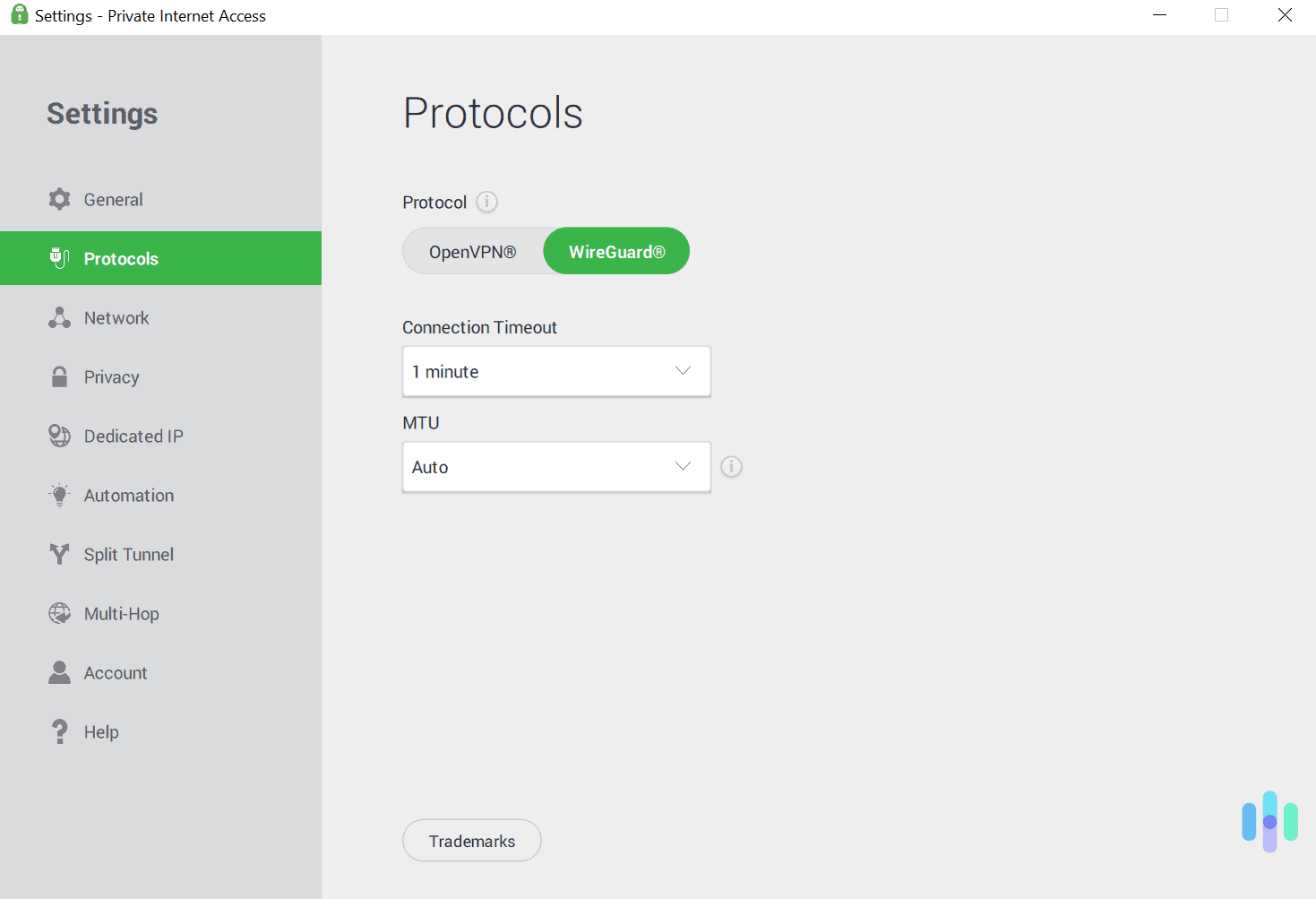
- Optimize OpenVPN for speeds. OpenVPN is secure, but not very fast. If you insist on using it, make sure to use it over UDP instead of TCP, since it’s faster that way. Also, if the VPN allows you to customize the protocol’s encryption, switch from AES-256 to AES-128 encryption. AES-128 is still very secure, but faster than AES-256.
- Use split tunneling. If this feature is available, use it to only route traffic that you want to encrypt through the VPN. The less data the VPN has to route, encrypt, and decrypt, the faster its speeds will be. For example, if you only want to use the VPN to watch Netflix, use split tunneling to only route Netflix traffic through the VPN.
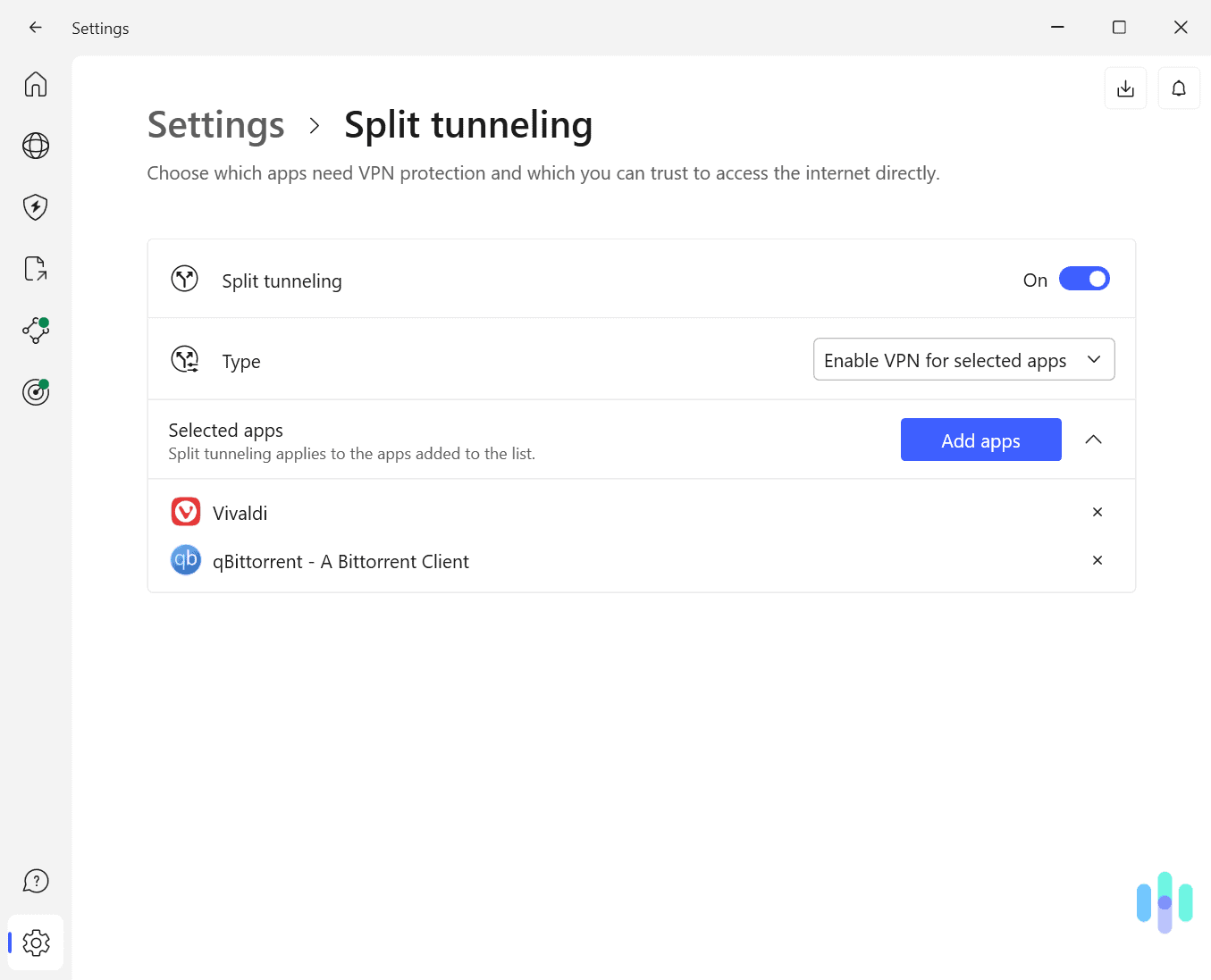
- Shut down all web-connected apps that you’re not using. You shouldn’t leave web-connected apps running in the background if you’re not using them. That will only consume more bandwidth, which could slow down your VPN speeds. For example, if you’re using the VPN to watch streaming content, you don’t need to leave your P2P app or Steam client running in the background.
- Use a wired connection instead of Wi-Fi. If possible, we recommend hooking up your device directly to your router via an ethernet cable. This way, you won’t have to deal with weak or unstable Wi-Fi signals, which can seriously impact your VPN speeds.
FYI: Keep in mind that a VPN’s speeds completely depend on how fast your original internet speeds are. If your baseline speeds are too slow, your VPN speeds will be really slow, too. The only solution in this case is to upgrade to a faster internet connection.
Do VPNs Ever Improve Internet Speeds?
Generally, no. Using a VPN will actually slow down your internet speeds. That’s due to the encryption-decryption process. It increases the time it takes for your device to exchange data with the VPN server. The distance between you and the VPN server will also impact the data exchange time.
There’s only one situation when a VPN could improve your original speeds, and that’s when you’re dealing with ISP throttling. This is when your ISP selectively slows down your speeds for bandwidth-heavy online activities, like streaming, torrenting, or gaming. Your ISP might do this to optimize bandwidth usage during peak internet hours.
A VPN could prevent ISP throttling by encrypting your traffic. That stops your ISP from seeing what you’re doing online, so they won’t be able to selectively slow down your speeds for specific online activities.
FYI: f you suspect that your ISP is throttling your speeds, using a VPN could put an end to that. But make sure to only connect to a VPN server in your country (or city, if possible). That way, the VPN’s impact on your speeds will be minimal. If you use a distant VPN server instead, you’ll still experience slowdowns even if your ISP can’t throttle your speeds anymore.
Can Speed Boosters Increase VPN Speeds?
Speed boosters (also called device optimizers) are apps that can improve the performance of your device. By doing so, they can improve your browsing, streaming, or gaming experience. Does this mean they could also increase VPN speeds?
Well, no. They don’t actually speed up your VPN connection — it’s just your device that they’re speeding up.
Even so, speed boosters are still useful tools. They are available as standalone apps, but you can also get access to them via antivirus software. Antiviruses specifically optimize their speed boosters to clean up junk files, remove potentially unwanted programs, and get rid of leftover files from uninstalled programs.
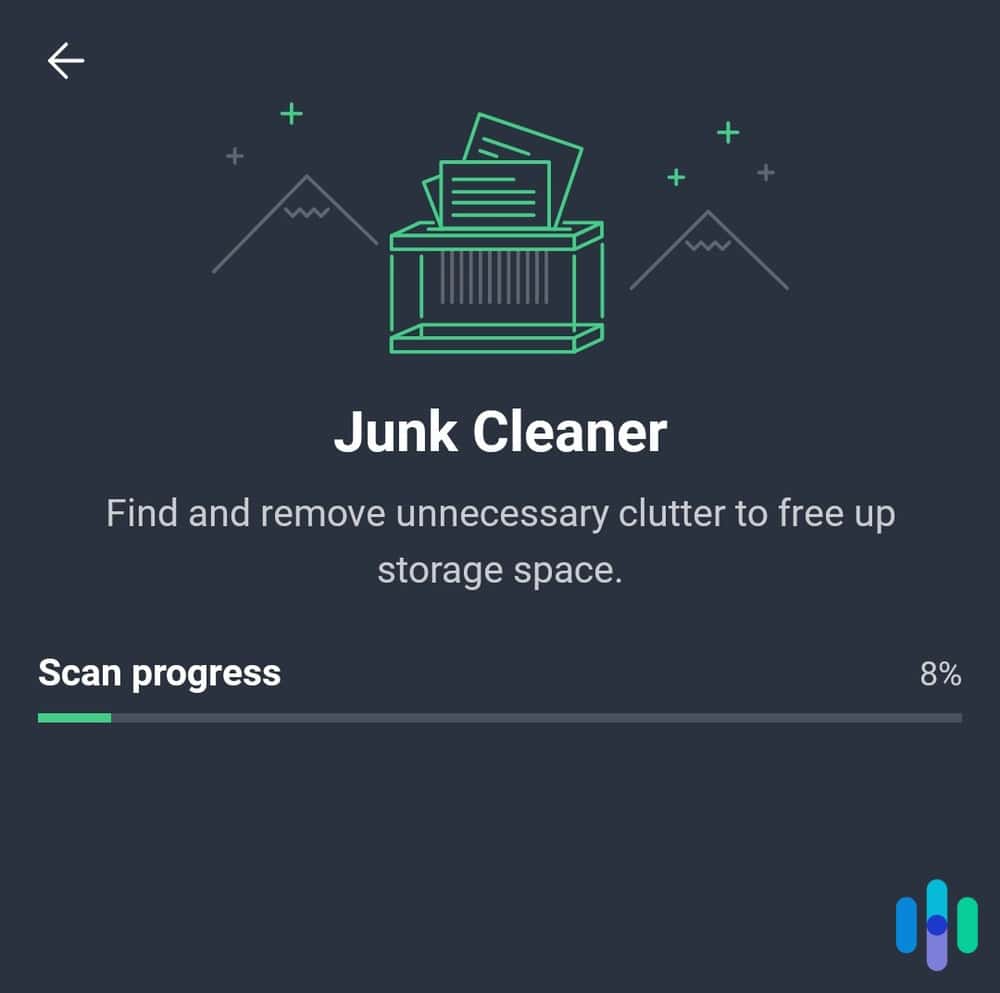
If you’d be interested in getting an antivirus, there are actually some brands that offer VPN and antivirus packages. Check out our Norton Secure VPN review, for example. It may not be as fast as the VPNs here, but it offers a host of additional digital safety tools, including a device optimizer.
Are Free VPNs Fast?
Generally, no. Free VPNs tend to be pretty slow, mainly because they only provide access to a limited number of servers, and those servers are often overcrowded. In addition, a lot of free VPNs restrict data usage and limit users’ speeds. For example, a free VPN could limit you to 10 GB per month and 2 Mbps speeds. Also, some services don’t allow free users to use fast protocols, like WireGuard or IKEv2/IPSec (they instead restrict them to OpenVPN).
If you insist on using a free VPN, there are some good options that provide fast speeds. Proton VPN is a good example. It maintained really good speeds in our tests, and we also like how it provides unlimited bandwidth and strong privacy features. But it does have some limitations. For instance, it only has free servers in five countries, free users can’t choose which servers they connect to, and the free version limits you to just one connection.
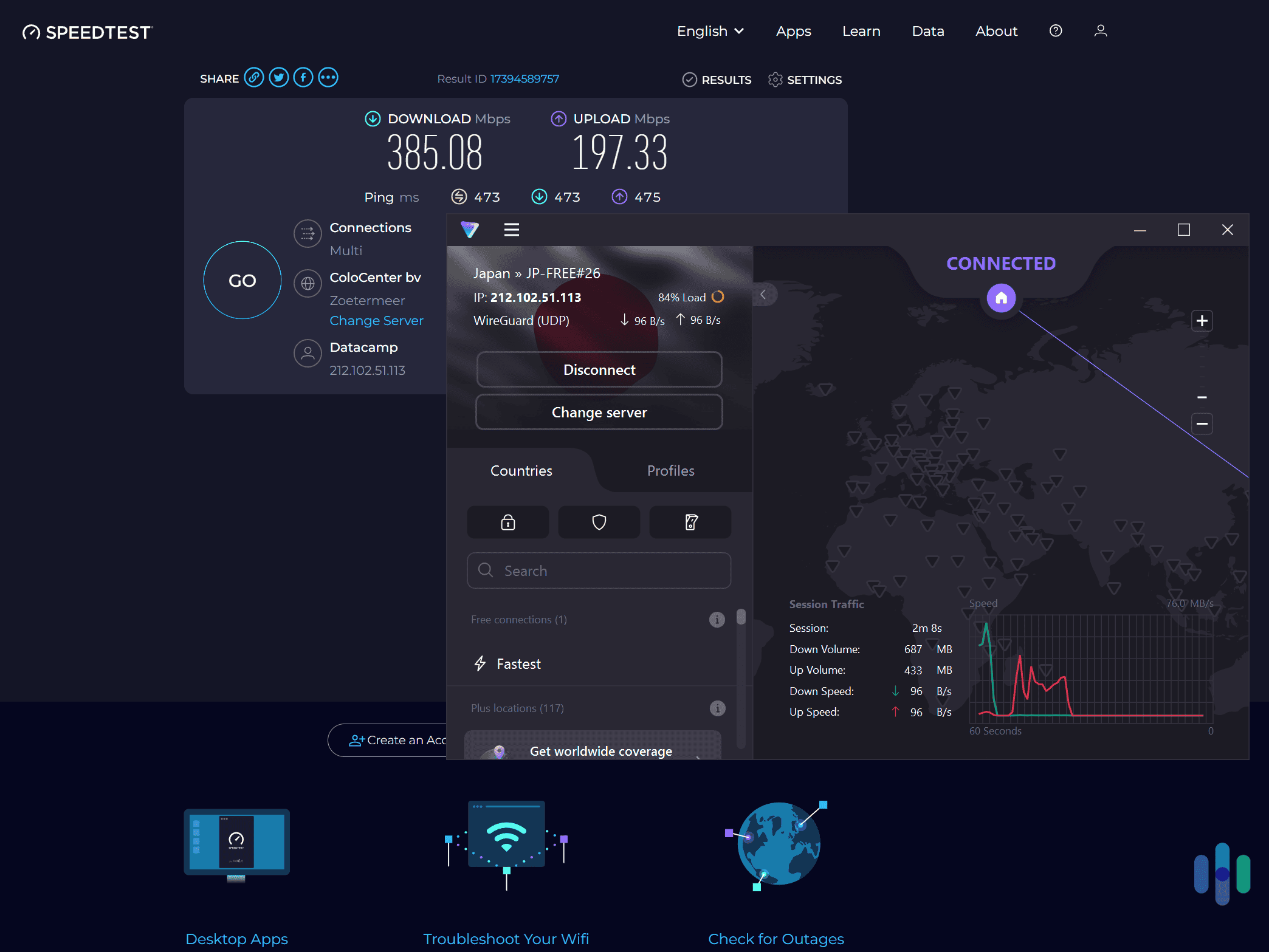
Ultimately, it’s best to just opt for a premium VPN. You could try a paid service with a free VPN trial, or you can just sign up for any VPN that has a generous money-back guarantee, which lets you test the service risk-free.
Pro Tip: If you want to take advantage of a VPN’s money-back guarantee, make sure to sign up for the service via its website. Most VPNs’ refund policies don’t cover users who sign up via Google Play or iTunes.
What Are the Fastest Alternatives to VPNs?
If a VPN’s speeds just don’t cut it for you, there are some alternatives you can try:
- Smart DNS: This is a feature that allows you to access streaming content on various devices, like gaming consoles and smart TVs. You should only use a smart DNS for streaming when security and privacy are not a concern. That’s because the smart DNS doesn’t change your IP or encrypt your traffic. Due to that, it also provides significantly faster speeds than a VPN.
- Proxy: A proxy changes your IP address just like a VPN does. However, most proxies don’t use encryption, so they’re less secure than VPNs. We only recommend using a proxy when your main concern is just hiding your IP address, and not making your traffic unreadable. For example, when you want to only hide your IP while torrenting, or when you only care about unblocking a site.
Most top VPNs include free access to a smart DNS or a proxy service via their subscriptions. For example, both NordVPN and Private Internet Access have a smart DNS and support SOCKS5 proxy connections.
Which VPN Features Slow Down Speeds?
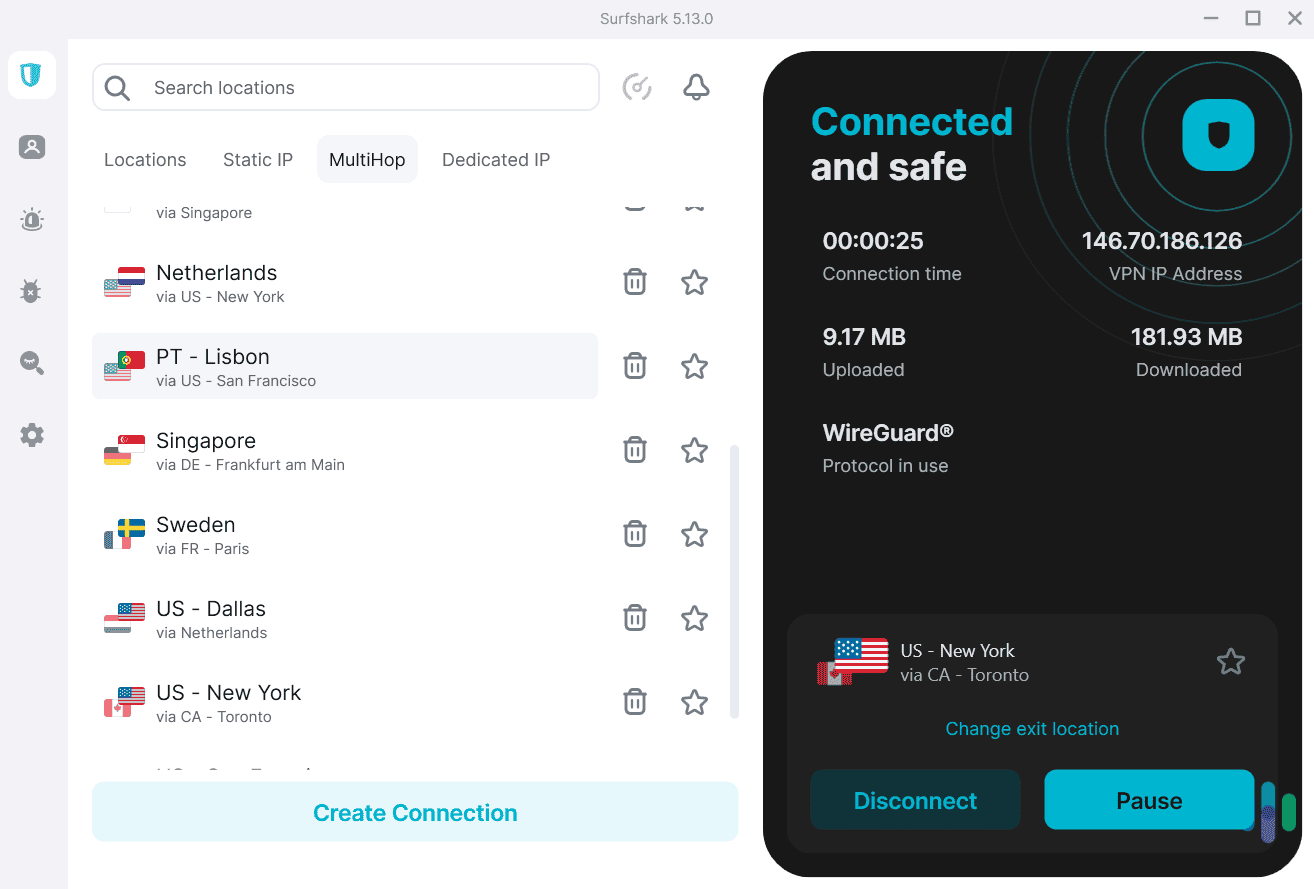
There are two VPN security features that you should avoid if speeds are very important:
- Obfuscation: This feature hides your VPN traffic and makes it look like regular internet traffic. It does that by adding an extra layer of encryption to the VPN connection, so it will cause more noticeable slowdowns.
- Double VPN connections: This feature routes your traffic through two VPN servers instead of just one server. It provides extra security by protecting your data with one more layer of encryption. But double VPN connections are slower than regular VPN connections. That’s due to the extra encryption, and also due to the extra distance your data has to travel to reach the second VPN server.
We only recommend using obfuscation or double VPN connections in situations where it’s necessary to do so. For example, obfuscation helps you avoid VPN traffic blocks in restrictive countries (like China or Russia). And double VPN connections are mandatory if you’re handling very sensitive data, like if you’re a political activist or a whistleblower.
If you think you need to use such features, we recommend picking NordVPN. We ran speed tests on its obfuscated and double VPN servers, and we always maintained pretty fast speeds for browsing, streaming, and torrenting.
Conclusion: Is Speed The Main Factor?
We like fast VPNs, but not at the expense of online privacy. Speed is certainly one of the things to consider when choosing a VPN, but it shouldn’t be the top priority. Luckily, most top VPN services nowadays are able to maintain very fast speeds, and also offer strong security and privacy.
All the VPNs we covered in this guide are both very secure and fast. NordVPN in particular stands out due to its lightning-fast browsing, streaming, and torrenting speeds, and high-end security and privacy features.
FAQs
-
What’s the fastest VPN?
We found that NordVPN, Surfshark, Proton VPN, IPVanish, and Private Internet Access (PIA) all provide very fast speeds. Each one also has its own specific use case. For example, NordVPN is excellent for security, Surfshark is very good for streaming, Proton VPN is a great free VPN with fast speeds, IPVanish is great for smartphones, and PIA is good for torrenting.
-
What’s the best way to increase my VPN speeds?
To get the best VPN speeds, we recommend connecting to the nearest VPN server. Also, make sure to use fast VPN protocols, like WireGuard or IKEv2/IPSec. And if split tunneling is available, use it to only route traffic that you want to secure through the VPN.
-
Can a VPN increase my internet speed?
Usually, no. But there is an exception: if your ISP is throttling your bandwidth. In that case, the VPN could prevent bandwidth throttling by making your data unreadable. That, in turn, could result in you having slightly faster speeds for bandwidth-intensive activities, like streaming, torrenting, or gaming.
-
Why does a VPN slow down your internet connection?
VPNs slow down your internet speeds because they route your traffic through a VPN server. That increases the travel time for your data, since it has to first reach the VPN server before it accesses the web. In addition, VPNs add a layer of encryption to your data, which further increases the transfer time.


